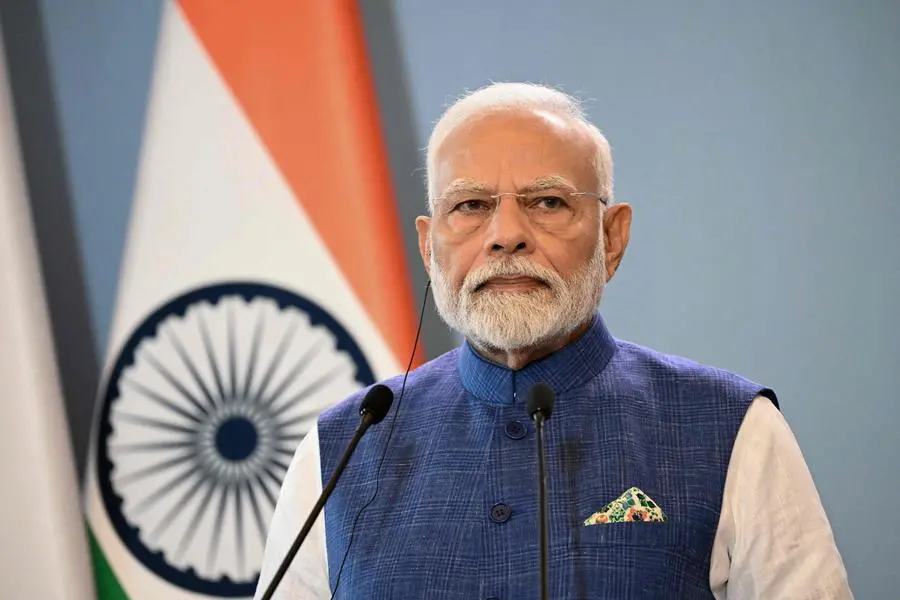PHOTO
Indian Prime Minister Narendra Modi was set to meet Ukrainian President Volodymyr Zelensky in Kyiv on Friday, a historic visit in which he is expected to push a settlement to end the war with Russia.
Modi is casting himself as a possible peacemaker, two and a half years after Russia invaded and weeks into a major Ukrainian counter-offensive into Russian territory.
"No problem can be resolved on a battlefield," Modi said ahead of his visit, adding that India supports "dialogue and diplomacy for restoration of peace and stability as soon as possible".
He is the first Indian premier to visit Ukraine.
A diplomatic breakthrough between Moscow and Kyiv looks more elusive than ever following Ukraine's shock offensive into Russia's western Kursk region.
It is also unclear whether Modi himself could be an effective dealmaker, seen by many in Ukraine as too close to Russian President Vladimir Putin.
He recently drew fresh condemnation in Kyiv for hugging the Russian leader during a visit to Moscow in July.
Modi said he planned to "share perspectives on peaceful resolution of the ongoing Ukraine conflict" with Zelensky, as well as discuss "deepening the India-Ukraine friendship".
He was in Poland on Thursday before departing for Ukraine.
"As a friend and partner, we hope for an early return of peace and stability in the region," Modi said on social media ahead of the visit.
Zelensky has said that "a number of documents are also expected to be signed" during the meeting with Modi.
- Indian diplomacy -
While India has historically warm ties with Russia, it also courts closer security partnerships with Western nations as a bulwark against its regional rival China.
New Delhi has avoided explicit condemnation of Russia's 2022 invasion and has abstained on UN resolutions that criticise the Kremlin, instead urging both sides to resolve their differences through direct dialogue.
But a peace deal now appears further away than ever before.
Ukraine in 2022 passed a decree ruling out direct talks with Putin, and Moscow recently said it would not countenance talks with Kyiv amid its surprise counter-offensive on Russia's Western Kursk region.
Putin earlier this year demanded Kyiv withdraw its troops from four Ukrainian regions that Moscow claims to have annexed -- despite not having full control over them -- as a precondition to negotiations.
Kyiv says any temporary pause in the fighting would only give Moscow time to regroup and rearm for a future attack.
Modi's previous diplomatic forays have drawn condemnation from Kyiv.
His visit to Moscow in July came hours after a Russian missile attack hit a children's hospital in Kyiv, one strike in a nationwide missile barrage that killed at least 39 people.
Modi was pictured hugging Putin at his country residence during that trip.
India has also been accused of profiting from Russia's invasion.
Cut-off from Western markets, Russia has become a major supplier of low-priced crude oil to India.
That arrangement has dramatically reconfigured their economic ties, saving India billions on fuel while drawing accusations from the West of bolstering Moscow's war coffers.
The two countries' close links date back to the Cold War, when the Kremlin was a key arms provider.
But ties have also been strained over the conflict, with Putin in 2022 publicly acknowledging that Modi had "concerns" over Russia's invasion.
More recently they have clashed over allegations Indian citizens were duped into fighting with Russian soldiers on the frontlines.
New Delhi has pushed Moscow to return several of its citizens who signed up for "support jobs" with the Russian military but were later sent into combat.
At least five Indian fighters have been killed in the war.





















